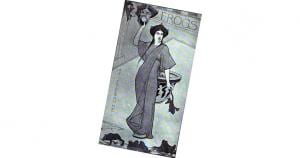 The society might have been dying, but he won a few comedy prizes.
The society might have been dying, but he won a few comedy prizes.
Aristophanes was hilariously waggish having mocked a few philosophers, perhaps, getting one killed, a theist who refused to move with the times, but Aristophanes was funny. His city would dead as an independent state in about fifty years, he saw the rot that would ruin her, but he made jokes, good jokes, and so he endures. Why?
Aristophanes helped nobody decide wisely, yet he had a few good quips. He amused a city to slumber so they would not recognize the comedy was a tragedy.*
Reading Frogs this term has been painful. This is a play for a powerful city, a people in a golden age that is about to end disastrously. The brightest and best, men like Alcibiades, have been corrupted and serve self over city. “Not to worry,” the new sophists cried, “we have a more sophisticated morality than your parents! And by the way, have you paint your tuition?”
As for Socrates and his attempt to start discussions, to examine presuppositions, Aristophanes had a response:
So it’s not smart to sit and chat
With Socrates, tossing aside Artistic merit, shedding all
That’s best of the tragedian’s art.
To fritter away all one’s time
On quibbling and pretentious talk,
And other such inane pursuits,
Is truly the mark of a fool.
The comedy Frogs is written around a competition between the old writers and the the new. The important thing, after all, when the city is dying was to adjudicate who was the greatest playwright, report breathlessly on the ancient equivalent of the Tony Awards, while being witty. If the city died, because education had left citizens corrupted, then sniff and sneer:
I loathe a citizen who acts so fast
To harm his country and yet helps her last,
Who’s deft at managing his own success,
But useless when the city’s in a mess.
Say this, sassily, and sashay off to a symposium to celebrate your prize. The city will, almost surely, last your time, and the leaders like to be tweaked, if you are not too serious about the criticism. Call all sorts of names, but give the “lions their meat.”
Innovate by giving the slave a voice, making him insubordinate, and having him crack wise. Do not let him go too far and challenge the very notion of slavery. To avoid the appearance of elitism, cater to the elite but work in quite a few fart jokes. Nobody is an elitist, who tells fart jokes. Most of all subordinate the gods of the cities to an agenda wholly ambitious in terms of verities, but likely to win the theater award at the next festival.
Aristophanes wrote when Athens could have gone forward, but imperialism destroyed democratic dreams. He might have been a prophet, but he settled for prophet and passed a perfumed wind instead of following the truth where the truth led. Just make sure to throw in a lot of cultural references, play to nostalgia shamelessly if it is the right sort, and you will be a wag in your day.
Mock traditional religion, but don’t go too far. Your reward will be an audience.
And prizes!
All this seems relevant, but how?
Just so, when men are needed by the nation,
The best have been withdrawn from circulation.
Men of good birth and breeding, men of parts,
Well schooled in wrestling and the gentler arts, 730
These we abuse, and look instead to knaves,
Upstarts, nonentities, foreigners and slaves–Rascals all!
Honestly, what men we choose!
There was a time when you’d have scorned to use
Men so debased, so far beyond the pale,
Even as scapegoats to be dragged from jail
And flogged to death outside the city gates.
Misguided friends, change now, it’s not too late!
Try the good ones again: if they succeed,
You will have shown that you have sense indeed;
And if things don’t go well, if these good men
All fail, and Athens comes to grief, why, then
Discerning folk will murmur (let us hope):
‘She hanged herself, but with a first-rate rope!’***
———————————-
*See the end of Plato’s Symposium.
**I am grateful for the freshman at The College for the ideas that generated this devotional.
*** Aristophanes, Frogs. (Penguin Classics)












